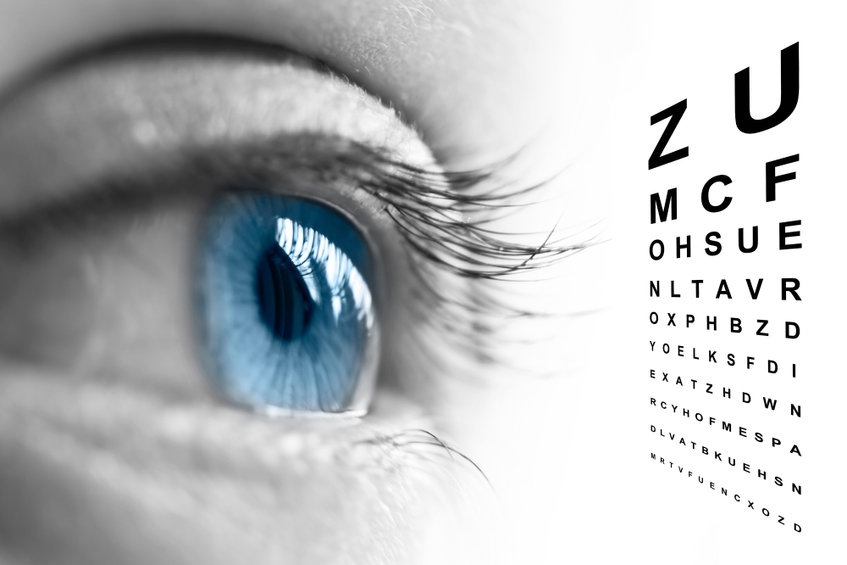Primary Open Angle Glaucoma is a disease that affects the optic nerve of the eye, causing progressive loss of peripheral vision. It is one of the most common vision threatening eye conditions worldwide, and the leading cause of irreversible blindness. It is estimated that half of people with glaucoma are unaware they have it. This is because glaucoma in its early stages has no symptoms. In fact, people will often not “see” their glaucoma until it reaches a severe stage. Glaucoma usually affects both eyes, though can affect one eye more than the other. As vision changes occur in one eye, the other eye (if less affected) can fill in the gaps, making vision with both eyes open appear normal. Changes in glaucoma generally occur very slowly, over several years, which is why this eye disease is referred to as the “silent stealer of sight”.
Glaucoma usually occurs in the presence of higher-than-normal eye pressure. Our eye is a closed system. There are structures within the eye that secrete a watery fluid called “aqueous”. Channels inside the eye are specifically designed to drain the aqueous at a rate that sustains a “normal” eye pressure. If there is an imbalance in the fluid exchange within the eye, changes in pressure can arise. The range of normal eye pressure is approximately 10-21. Above 21 is referred to as “ocular hypertension” and can be a risk factor for glaucoma.
Also read our blog about Dry Eyes and how to treat them.
Management of glaucoma includes scans of the optic nerve, side vision tests, and eye pressure measurements. Scans compare the health of the optic nerve to “normal” or “non-glaucoma” eyes. Side vision tests carefully map out the sensitivity of a person’s peripheral vision in each eye. These tests help the doctor determine if a person has, or is at risk for developing glaucoma. It has been shown that increased eye pressure puts stress on the optic nerve, increasing a person’s risk for developing glaucoma. Glaucoma is not a condition that can be cured, rather, treatment is aimed at slowing the progression to limit the potential effects on a person’s vision. Current treatment strategies include lowering eye pressure with drops and surgery.
The most common approach to treatment is with eye drops designed to lower eye pressure. These drops work by decreasing the amount of fluid produced in the eye, or increasing the amount drained from the eye. Some common drops for glaucoma include, latanoprost, timolol, brimonidine, and dorzolamide. Based on how these different drops work, they can be dosed once daily, or up to three times per day. Patients will often require more than one eye drop to maintain an appropriate eye pressure. Using several drops daily can be a burden on some patients, so manufacturers have developed combination drops. Combination drops such as Combigan, combine two drops, brimonidine and timolol, into one formulation. This helps increase the usefulness of the drop, while decreasing the amount of drops a patient is required to use. If drops alone are not enough, surgery is also an option. There are several surgical procedures that range from simple laser techniques to open more drainage channels, to surgically implanted tubes to drain the fluid. Although usually successful, most of these procedures aren’t considered until a patient has failed on drop therapy.
It is important to note that eye pressure is not the only risk factor for developing glaucoma. Factors such as age, race, family history, and overall health can also contribute to a person’s risk. The good news is, medical technology has advanced to a degree where an eye doctor can detect and treat glaucoma long before a person ever suffers any vision loss, and in many cases prevent it altogether. The only way for this to occur however, is with routine eye care and monitoring. If caught early and managed appropriately, glaucoma is rarely a blinding diagnosis, and most patients will live a life without any significant change in their vision. If you have concerns regarding glaucoma, or your risk, talk to your eye care provider at your next eye exam. For more information about glaucoma, and the different types, see the links below.
Save up to 80% on the cost of your prescriptions at your local pharmacy with EasyDrugCard.com. Download your free drug card and begin saving today.
References:
https://www.glaucomapatients.org/basic/statistics/












